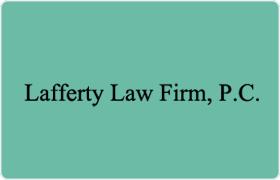Castalian Springs Collection Lawyer, Tennessee
Sponsored Law Firm
-
 x
x

Click For More Info:
-
Lafferty Law Firm, P.C.
1321 Murfreesboro Pike Suite 521 Nashville, TN 37217» view mapBankruptcy & Debt Over 30 Years Of Experience
Susan S. Lafferty is a CPA and Attorney who enjoys helping people with financial problems. She is located in Nashville, TN where she has lived for over 30 years.
800-936-9071
Ben M. Rose
Business Organization, Collection, Consumer Protection, Contract
Status: In Good Standing
FREE CONSULTATION
CONTACTChristopher English Hugan
Litigation, Business, Collection
Status: In Good Standing Licensed: 22 Years
Christopher Wilson Conner
Civil Rights, Business & Trade, Collection
Status: In Good Standing Licensed: 29 Years
 Susan Lafferty Nashville, TN
Susan Lafferty Nashville, TN Practice AreasExpertise
Practice AreasExpertise
